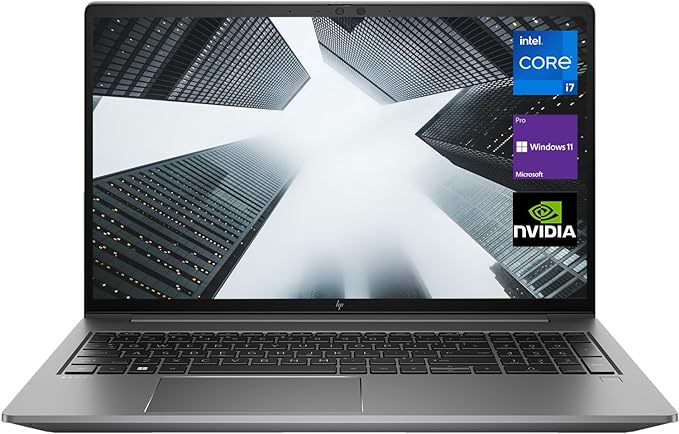Best laptops for electrical engineering students | Being an electrical engineering student demands dedication and a powerful toolset. Your laptop becomes your companion, a workspace for simulations, coding, and tackling complex problems. Choosing the right one is crucial, as it needs to handle demanding software, offer portability, and provide a comfortable user experience for long hours of work. This guide dives into the essential factors for electrical engineering students and recommends some of the top laptops that will empower you throughout your academic journey.
Electrical Engineering Laptop Requirements
- Processor: Intel Core i5 or AMD Ryzen 5 equivalent (or higher), preferably quad-core or better.
- Memory: 16GB RAM (32GB recommended)
- Storage: 512GB SSD (1TB recommended)
- Operating system: Windows 10 64-bit or macOS Monterey or later
- Display: 15.6″ Full HD (1920×1080) resolution (higher resolution optional)
- Graphics card: Integrated graphics (AMD Radeon or Intel Iris Xe) or dedicated graphics card (NVIDIA GeForce GTX 1650 or AMD Radeon RX 5500M)
- Ports: USB 3.0 ports, HDMI port, Ethernet port
The Best Laptops for Electrical Engineering Students
- Apple 2023 MacBook Air Laptop with M2 chip ($1,898)
- MSI Creator Z16P 16″ Professional Creator Laptop ($1,599)
- Dell Precision 5770 Mobile Workstation ($2,450)
- HP ZBook Power G9 Business Mobile Workstation Laptop ($1,329)
- ASUS Creator Laptop Q530 2023 ($1,429)
- GIGABYTE AORUS 7 Laptop ($935)
1. Apple 2023 MacBook Air Laptop with M2 chip

| Brand | Apple |
| Ram Memory Installed Size | 16 GB |
| Storage | 512GB SSD |
| Display resolution | 2560 x 1600 pixels |
The 15-inch MacBook Air with its impressive features, such as the spacious Liquid Retina display, powerful M2 chip, and extended battery life, could indeed be considered one of the best laptops for electrical engineering students. Here’s a breakdown of how its features align with the needs of students in this field:
Properties of MacBook Air
- Spacious Liquid Retina Display: The high-resolution 15.3-inch Liquid Retina display with 500 nits of brightness and P3 wide color support provides a vibrant and detailed viewing experience. This is particularly beneficial for electrical engineering students who often work with complex diagrams, schematics, and software tools, requiring a clear and expansive display.
- Powerful M2 Chip: The supercharged M2 chip with an 8-core CPU and 10-core GPU, coupled with up to 24GB of unified memory, offers significant processing power. This is crucial for running resource-intensive engineering applications, simulations, and software development tools commonly used in electrical engineering studies.
- Extended Battery Life: The impressive battery life of up to 18 hours ensures that students can work throughout the day without constantly worrying about running out of power. This is especially useful for long study sessions, lab work, or projects that require extended periods of computer usage.
- Durable and Portable Design: The thin and light 100 percent recycled aluminum enclosure makes the MacBook Air a portable yet durable choice. This is advantageous for students who need to carry their laptops between classes, labs, and study sessions.
- AppleCare+ for Mac: The option to extend coverage to three years with AppleCare+ and the added accidental damage coverage can provide peace of mind for students who rely heavily on their laptops for their coursework. The global repair coverage and mail-in repair service further enhance the overall support for the device.
While individual preferences may vary, the MacBook Air’s combination of powerful hardware, high-quality display, and portability make it a strong contender for electrical engineering students who require a reliable and efficient laptop for their academic and practical needs.
2. MSI Creator Z16P 16″ Professional Creator Laptop

| Model Name | CREATORZ16P040 |
| Screen Size | 16 |
| Color | Gray |
| Hard Disk Size | 1 TB |
| CPU Model | Core i7 |
| Ram Memory Installed Size | 32 GB |
| Operating System | Windows 11 Pro |
| Graphics Card Description | Integrated |
| Graphics Coprocessor | NVIDIA GeForce RTX 3080 Ti |
The MSI Creator Z17P appears to be a powerful and feature-rich laptop that could be well-suited for electrical engineering students, thanks to its impressive specifications and capabilities. Here are some aspects of the laptop that align with the needs of electrical engineering students:
Properties of Creator Z16P
- Performance: The 12th Gen. Intel Core i7 processor and the NVIDIA GeForce RTX 3080 ti graphics card provide a high level of performance. This is crucial for running resource-intensive engineering software and simulations commonly used in electrical engineering studies.
- Windows 11 Pro: The inclusion of Windows 11 Pro ensures that the laptop is up to date with the latest operating system, which can be beneficial for compatibility with engineering software and tools.
- Visual Performance: The 16″ 165Hz QHD+ Touch Display with a 16:10 aspect ratio offers a large and high-resolution screen, providing ample space for multitasking and detailed work. This is valuable for electrical engineering students who may need to work on complex schematics, simulations, or CAD designs.
- Portability: The lightweight chassis and the 90Whr battery make the laptop suitable for on-the-go usage. This is beneficial for students who need to move between classes, labs, or work on projects outside of a fixed location.
- Supercharged Graphics: The NVIDIA GeForce RTX 3080 ti graphics card is a powerful GPU that can accelerate graphics and computation tasks, which can be beneficial for tasks like rendering and simulations in electrical engineering applications.
In conclusion, the MSI Creator Z17P seems to offer a well-rounded package of performance, display quality, and portability that could make it a strong contender for electrical engineering students who require a laptop capable of handling demanding tasks associated with their field of study.
3. Precision 5770 (Best Dell laptop for electrical engineering students)

| Model Name | Precision 5770 |
| Screen Size | 17 Inches |
| Color | Black |
| Hard Disk Size | 512 GB |
| CPU Model | Core i7 Family |
| Ram Memory Installed Size | 32 GB |
| Operating System | Windows 11 Pro |
| Special Feature | Anti-glare |
| Graphics Card Description | Dedicated |
The Dell Precision 5770 Mobile Workstation seems to be a robust and powerful laptop with specifications that could make it suitable for electrical engineering students. Here’s a breakdown of its features and how they align with the needs of electrical engineering students:
Properties of Precision 5770
- Processor: The Intel Core 12th Generation i7-12800H with 14 cores and up to 4.80GHz clock speed is a high-performance processor. It should handle complex computations and simulations that are often part of electrical engineering tasks.
- Graphics: The NVIDIA RTX A3000 with 12GB GDDR6 is a capable graphics card. It can support CAD software, simulations, and other graphics-intensive applications commonly used in electrical engineering.
- Display: The 17-inch FHD+ display with a resolution of 1920 x 1200 and 100% sRGB coverage is beneficial for working with detailed schematics, drawings, and other visual content. The anti-glare feature and ComfortView Plus with Low Blue Light are also helpful for long study sessions.
- Memory: The 32GB DDR5 RAM is a generous amount that should facilitate smooth multitasking and handling of large datasets or simulations, common in electrical engineering work.
- Storage: The 512GB PCIe M.2 SSD provides fast storage access, which is important for quick boot times and data retrieval. Depending on the specific needs of the user, additional external storage might be considered.
- Connectivity: The presence of Intel Wi-Fi 6 (6GHz) AX211 and Bluetooth 5.2 ensures fast and reliable wireless connectivity, which is crucial for research, online collaboration, and staying connected.
- Build Quality: The inclusion of a backlit keyboard, a fingerprint reader on the palmrest, and a 5 Years ProSupport warranty indicates attention to user convenience and durability, which are essential for a device that will be used extensively.
- Operating System: The laptop comes with Windows 11 Pro, providing a modern and secure operating environment.
In summary, the Dell Precision 5770 Mobile Workstation, with its powerful specifications, large and high-resolution display, ample memory, and robust build quality, appears to be well-suited for the demanding tasks encountered by electrical engineering students. However, individual preferences and specific software requirements should also be considered before making a purchase.
4. ZBook Power G9 (Best hp laptop for electrical engineering students)

| Model Name | HSN-Q36C |
| Screen Size | 15.6 Inches |
| Color | Grey |
| Hard Disk Size | 1 TB |
| CPU Model | Core i7 Family |
| Ram Memory Installed Size | 32 GB |
| Operating System | Windows 11 Pro |
| Special Feature | Numeric Keypad |
| Graphics Card Description | NVIDIA RTX A1000 Dedicated |
The HP ZBook Power G9 Business Mobile Workstation Laptop appears to be an excellent choice for electrical engineering students due to several key features tailored to their needs:
Properties of ZBook Power G9
- High-Performance Processor and GPU: The 12th Gen Intel Core i7-12700H Processor with 14 cores and 20 threads, coupled with the NVIDIA RTX A1000 GPU, provides substantial processing power and graphics capabilities. This configuration is well-suited for running demanding engineering software, simulations, and design tools commonly used in electrical engineering coursework.
- Ample RAM and Storage: With 32GB of high-bandwidth DDR5 RAM, the laptop can efficiently handle multitasking, enabling students to run multiple engineering applications simultaneously without experiencing performance bottlenecks. The 1TB PCIe NVMe M.2 Solid State Drive offers fast boot-up times and data transfer speeds, essential for storing and accessing large datasets, project files, and software applications.
- FHD IPS Display: The 15.6″ diagonal FHD IPS display with narrow bezels and anti-glare technology provides a crisp and immersive viewing experience, ideal for analyzing complex diagrams, schematics, and CAD drawings commonly encountered in electrical engineering coursework.
- Versatile Connectivity Options: The laptop features a comprehensive array of ports including USB Type-C, USB Type-A, HDMI, headphone/mic combo, and Ethernet RJ-45, facilitating seamless connectivity with peripherals, external monitors, and network devices commonly used in engineering labs and projects.
- Windows 11 Pro Operating System: Windows 11 Pro offers a user-friendly interface, enhanced productivity features, and improved performance optimizations that can benefit electrical engineering students in their day-to-day tasks, such as coding, circuit design, and data analysis.
Overall, the HP ZBook Power G9 Business Mobile Workstation Laptop combines powerful hardware specifications, robust connectivity options, and an optimized operating system, making it a top choice for electrical engineering students seeking a reliable and high-performance computing solution for their academic pursuits.
5. Creator Q530 (Best Asus laptop for electrical engineering students)

| Model Name | Creator Laptop Q |
| Screen Size | 15.6 Inches |
| Color | Black |
| Hard Disk Size | 2 TB |
| CPU Model | Core i7 Family |
| Ram Memory Installed Size | 32 GB |
| Operating System | Windows 11 Pro |
| Graphics Card Description | NVIDIA GeForce RTX 3050 6GB Dedicated |
The ASUS Creator Laptop Q530 offers a robust set of features that make it a compelling choice for electrical engineering students:
Properties of ASUS Creator
- Powerful Processor: The 13th Generation Intel Core i7-13620H 10-Core processor provides substantial computing power necessary for running demanding engineering software and simulations. With a base clock of 2.9GHz and up to 5.0 GHz with Intel Turbo Boost Technology, it can handle multitasking and intensive computations efficiently.
- Ample Memory and Storage: The upgraded 32GB DDR5 SDRAM and 2TB NVMe M.2 Solid State Drive ensure smooth performance and provide ample space for storing large datasets, programming projects, and multimedia files.
- High-Resolution OLED Display: The 15.6″ FHD OLED display with 1920 x 1080 resolution and 600 nits brightness offers vibrant colors, high contrast, and sharp image quality, which are essential for detailed circuit diagrams, CAD designs, and visualizations common in electrical engineering tasks.
- Dedicated Graphics: The NVIDIA GeForce RTX 3050 6GB GDDR6 graphics card enhances performance in tasks such as 3D modeling, rendering, and GPU-accelerated simulations.
- Connectivity Options: With Intel Wi-Fi 6E AX211, Bluetooth 5.3, Thunderbolt 4, USB Type-C, USB 3.2 Gen 2, HDMI v2.1, and LAN ports, the laptop provides versatile connectivity options for peripherals, external displays, and networking devices.
- Portability and Battery Life: Despite its powerful specifications, the laptop remains relatively lightweight at 3.97 lbs and boasts a 90Whr 3-cell lithium-ion battery, offering up to 8 hours of non-gaming battery life. This makes it suitable for on-the-go use during classes, labs, or study sessions.
- Enhanced Security Features: The inclusion of a fingerprint reader adds an extra layer of security for sensitive engineering work and personal data.
- Ergonomic Design: The full-size backlit keyboard with a numeric keypad and the 180-degree hinge design enhance usability and comfort, especially during long coding sessions or design work.
Overall, the ASUS Creator Laptop Q530 combines powerful hardware, high-resolution display, ample storage, and versatile connectivity options, making it a top choice for electrical engineering students who require performance, reliability, and versatility in their computing devices.
6. GIGABYTE AORUS 7 Laptop

| Model Name | AORUS 7 9KF-E3US513SH |
| Screen Size | 17.3 Inches |
| Color | Black |
| Hard Disk Size | 512 GB |
| CPU Model | Core i5 |
| Ram Memory Installed Size | 16 GB |
| Operating System | Windows 11 Home |
| Special Feature | Backlit Keyboard |
| Graphics Card Description | NVIDIA GeForce RTX 4060 Dedicated |
The GIGABYTE AORUS 7 with its impressive specifications is indeed a fantastic choice for electrical engineering students. Here’s why:
Properties of AORUS 7
- Powerful Processing: The Intel i5-12500H processor offers high performance, crucial for running resource-intensive engineering software like CAD programs, circuit simulators, and programming IDEs.
- Graphics Capability: The NVIDIA GeForce RTX 4060 Laptop GPU provides not only smooth graphics for gaming but also supports GPU-accelerated engineering applications, enabling faster rendering and simulations.
- Ample Memory and Storage: With 16GB DDR4 RAM and a 512GB Gen4 M.2 SSD, the laptop ensures smooth multitasking and quick access to files and programs, essential for managing complex projects and datasets.
- High-Performance Display: The 17.3″ FHD display with a 360Hz refresh rate and 100% sRGB coverage offers crisp visuals and accurate color representation, crucial for tasks like circuit design and image processing.
- Next-Gen Connectivity: Windows 11 Home, Wi-Fi 6E, and Bluetooth V5.2 provide seamless connectivity, enabling students to collaborate online, access cloud resources, and connect to peripherals without any hassle.
- Audio and I/O: The inclusion of DTS:X Ultra Audio Technology, built-in microphone, and 2x 2W speakers ensure immersive audio experiences, while the array of ports including Thunderbolt 4, HDMI 2.1, and USB 3.2 Gen1 offer versatile connectivity options for peripherals and external displays.
Overall, the GIGABYTE AORUS 7 combines powerful hardware, high-quality display, and modern connectivity features, making it an excellent companion for electrical engineering students, whether they’re designing circuits, coding algorithms, or collaborating on group projects.
Conclusion
In conclusion, choosing the best laptop for electrical engineering students involves considering various factors such as processing power, memory capacity, graphics capabilities, and portability. It’s essential to strike a balance between performance and practicality, ensuring that the selected laptop can handle the demanding software used in electrical engineering while remaining portable enough for students to carry between classes. Ultimately, the ideal laptop will support the academic and project-related needs of electrical engineering students, enabling them to excel in their studies and future professional endeavors. As technology continues to advance, staying informed about the latest developments and considering the specific requirements of the electrical engineering field will help students make a well-informed decision when investing in their educational tools.
FAQs
As an electrical engineering student, you’ll need a powerful and reliable laptop that can handle demanding software and simulations. But with so many options on the market, deciding which one is right for you can be overwhelming. This FAQ guide will help you navigate the features and specs that matter most for your engineering studies, so you can choose the best laptop to power your success.
In this section, we will look for answers to the following frequently asked questions about laptops for electrical engineers.
- Do you need a powerful laptop for electrical engineering?
- How much RAM does an electrical engineer need?
- What laptop is good for electrical engineering major?
1. Do you need a powerful laptop for electrical engineering?
Yes, you do need a powerful laptop for electrical engineering. Electrical engineering is a demanding field that requires students to run complex software simulations, analyze large datasets, and design intricate circuits. A powerful laptop will ensure that you can run these demanding applications smoothly and efficiently.
Here are some of the specific reasons why you need a powerful laptop for electrical engineering:
- Software: Electrical engineers use a variety of software programs, such as SPICE, MATLAB, and AutoCAD. These programs can be very resource-intensive, and a powerful laptop will ensure that they run smoothly.
- Simulation: Electrical engineers often need to run simulations of circuits and systems. These simulations can be very complex and require a lot of processing power.
- Data analysis: Electrical engineers often need to analyze large datasets of data. This data analysis can be very time-consuming on a less powerful laptop.
- Circuit design: Electrical engineers often need to design complex circuits. This circuit design can be very difficult to do on a less powerful laptop.
When choosing a laptop for electrical engineering, you will need to consider the following factors:
- Processor: The processor is the heart of the laptop and is responsible for running all of the software. A powerful processor is essential for electrical engineering.
- RAM: RAM is the memory that the laptop uses to store data. More RAM will allow you to run more demanding applications at the same time.
- Storage: Storage is used to store your files and software. A solid-state drive (SSD) is much faster than a traditional hard drive and is a good option for an electrical engineering laptop.
- Graphics card: The graphics card is responsible for rendering graphics. A more powerful graphics card will be necessary if you plan on doing any 3D modeling or simulation.
- Display: The display is the screen that you will be looking at all day. A high-quality display with a good resolution is important for electrical engineering.
2. How much RAM does an electrical engineer need?
The amount of RAM an electrical engineer needs depends on their specific tasks and software usage. Here’s a breakdown:
Minimum RAM:
- Basic tasks: 8GB RAM can handle basic electrical engineering tasks like coding, circuit simulations, and running simple 2D software.
- Moderate tasks: 16GB RAM is recommended for most electrical engineering students and professionals who use software like MATLAB, PSpice, and KiCad. This allows for multitasking and handling larger projects.
Recommended RAM:
- Advanced tasks: 32GB RAM or more is recommended for professionals who work with large datasets, complex 3D simulations, or perform computationally intensive tasks like machine learning.
- Future-proofing: For future-proofing and flexibility, 32GB RAM is becoming increasingly common for electrical engineers, especially those working with emerging technologies like AI and IoT.
Additional factors to consider:
- Multitasking: If you frequently run multiple programs simultaneously, you’ll need more RAM to avoid performance issues.
- Software requirements: Check the specific software you plan to use and its minimum and recommended RAM requirements.
- Budget: RAM is a significant cost factor, so consider your budget and prioritize upgrades based on your needs.
Here’s a quick table summarizing the RAM recommendations:
| Task Complexity | Minimum RAM | Recommended RAM |
|---|---|---|
| Basic | 8GB | 16GB |
| Moderate | 16GB | 32GB |
| Advanced | 32GB+ | 64GB+ |
Some additional points:
- Consider upgrading your RAM if you experience frequent slowdowns or crashes.
- Investing in a computer with expandable RAM allows for future upgrades.
- Utilize virtual memory to optimize RAM usage on computers with limited physical RAM.
Remember, the specific RAM requirement for an electrical engineer is individual and depends on their specific needs and workflow.
3. What laptop is good for electrical engineering major?
When choosing a laptop for an electrical engineering major, there are several factors to consider:
- Performance: Look for a laptop with a powerful processor (such as Intel Core i5 or i7, or AMD Ryzen) and ample RAM (8GB or more). Electrical engineering software can be resource-intensive, so you’ll want a machine that can handle multitasking and running simulation software smoothly.
- Graphics: Depending on your coursework and projects, you may need a laptop with dedicated graphics processing unit (GPU) for tasks like CAD (Computer-Aided Design) and simulation software.
- Portability: Consider how often you’ll need to carry your laptop around campus. A lightweight and portable laptop might be more convenient if you’ll be moving between classes frequently.
- Battery Life: You’ll likely spend long hours working on assignments and projects, so a laptop with good battery life is essential to ensure you can work without being tethered to a power outlet all the time.
- Storage: A solid-state drive (SSD) offers faster boot times and application loading compared to traditional hard disk drives (HDD). Aim for at least 256GB of SSD storage, but more if your budget allows or if you plan to store large project files.
- Compatibility: Ensure that the laptop is compatible with the software and tools commonly used in electrical engineering programs.
Ultimately, the best laptop for you will depend on your budget, specific requirements, and personal preferences. It’s a good idea to check with your school or program for any specific recommendations or requirements they may have regarding laptops for electrical engineering students.

